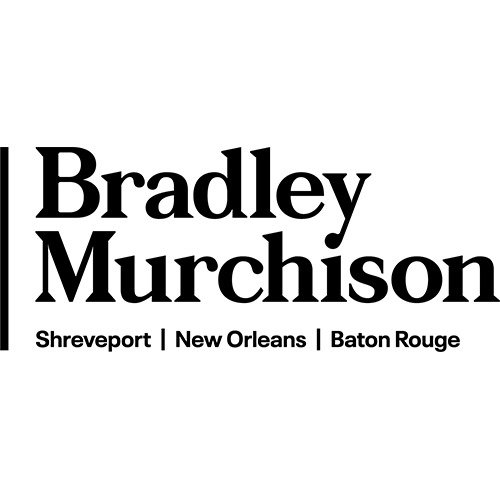Best Project Finance Lawyers in New Orleans
Share your needs with us, get contacted by law firms.
Free. Takes 2 min.
List of the best lawyers in New Orleans, United States
About Project Finance Law in New Orleans, United States
Project Finance is a specialized area of law that involves structuring, negotiating, and documenting the financial and legal aspects of large infrastructure or industrial projects. In New Orleans, this typically includes ventures such as energy facilities, real estate developments, transportation systems, and public-private partnerships. Project Finance focuses on using the project's assets, rights, and interests as collateral for financing, meaning lenders rely on the project's future revenues for repayment instead of the sponsor's overall creditworthiness. New Orleans’ unique mix of public entities, private investors, and regulatory agencies makes the local Project Finance landscape both dynamic and complex.
Why You May Need a Lawyer
Securing and structuring Project Finance deals usually involves significant legal complexity and multiple stakeholders. You may need a lawyer for several reasons, including:
- Negotiating loan agreements or investment contracts
- Conducting due diligence on regulatory and environmental concerns
- Drafting or reviewing project agreements between developers, contractors, and operators
- Navigating local, state, and federal laws, including zoning and permitting requirements
- Mitigating financial risk and ensuring compliance with lenders' requirements
- Resolving disputes among consortium members or with public authorities
- Structuring public-private partnership (P3) contracts for public infrastructure
Local Laws Overview
Project Finance in New Orleans is governed by a mixture of federal laws, Louisiana state statutes, and city ordinances. Some key local considerations include:
- Public-Private Partnerships (P3s): Louisiana law enables and regulates P3s for public infrastructure projects, which are common in New Orleans.
- Permitting and Zoning: All projects must comply with the City of New Orleans' Comprehensive Zoning Ordinance, and various local and state permits may be required depending on the project's scope and location.
- Environmental Laws: Louisiana has robust environmental review processes, especially around water management and coastal restoration, which can affect project approval.
- Finance and Securities Regulation: Project securities, bonds, or other financing tools must comply with both Louisiana and federal securities laws.
- Tax Incentives and Credits: Projects in specific zones, such as Opportunity Zones or Historic Districts, may qualify for special incentives, but these programs have detailed requirements.
- Construction Law: Louisiana statutes on construction contracts, liens, and insurance requirements are integral to most Project Finance deals in the region.
Frequently Asked Questions
What is Project Finance?
Project Finance is a way of funding large infrastructure or industrial projects by structuring them as legally independent entities, with repayment based on the project's own future cash flows.
How is Project Finance different from traditional financing?
Unlike traditional financing, which relies on the borrower's overall credit, Project Finance depends primarily on the revenue generated by the specific project to repay loans or investments.
What types of projects use Project Finance in New Orleans?
Common projects include energy plants, transportation systems, water treatment facilities, commercial real estate developments, and public infrastructure improvements.
Can public entities participate in Project Finance?
Yes. The City of New Orleans and the State of Louisiana frequently enter into P3s, combining public and private resources for infrastructure and development projects.
Are there special tax incentives available?
Yes. Projects in certain locations or industries may qualify for local, state, or federal tax credits and incentives, such as historic tax credits or Opportunity Zone programs.
What environmental regulations apply?
Projects must comply with federal and Louisiana environmental laws, in addition to specific New Orleans regulations concerning wetlands, flood control, and coastal restoration.
Who typically invests in Project Finance deals?
Major investors include commercial banks, institutional investors, infrastructure funds, governmental bodies, and sometimes international development agencies.
What legal documents are required?
Key documents include loan agreements, security agreements, project contracts (such as EPC and O&M contracts), permitting documents, and inter-creditor agreements.
What risks should I be aware of?
Risks include construction delays, cost overruns, regulatory and permitting challenges, unanticipated environmental liabilities, and difficulty achieving projected revenue targets.
How do I get started with a Project Finance deal?
Engage an experienced attorney to help assess the project, structure the transaction, conduct due diligence, and liaise with lenders, regulators, and investors.
Additional Resources
If you are considering Project Finance in New Orleans, the following organizations and resources can be valuable:
- Louisiana Economic Development (LED): Offers business incentives and guidance on large projects across the state.
- City of New Orleans Office of Economic Development: Provides information on zoning, permitting, public incentives, and P3 opportunities.
- Louisiana Public Facilities Authority: Facilitates financing for public and private infrastructure projects.
- Regional Planning Commission (RPC): Key resource for infrastructure planning and compliance in the greater New Orleans area.
- U.S. Department of Energy (for energy projects): Offers project support programs and information on federal funding.
- Bureau of Governmental Research (BGR): Nonprofit that publishes reports on local infrastructure and finance issues.
Next Steps
If you believe your project may require Project Finance, you should:
- Identify the project's scope, size, and potential partners or investors
- Research local, state, and federal requirements relevant to your industry and location
- Gather preliminary project documents, such as feasibility studies and business plans
- Contact an attorney experienced in Project Finance and large infrastructure projects in New Orleans
- Work with your attorney to assess legal risks, develop a financing structure, and approach potential lenders or public agencies
- Proceed step by step, as successful Project Finance transactions require careful coordination from planning to financial close
Lawzana helps you find the best lawyers and law firms in New Orleans through a curated and pre-screened list of qualified legal professionals. Our platform offers rankings and detailed profiles of attorneys and law firms, allowing you to compare based on practice areas, including Project Finance, experience, and client feedback.
Each profile includes a description of the firm's areas of practice, client reviews, team members and partners, year of establishment, spoken languages, office locations, contact information, social media presence, and any published articles or resources. Most firms on our platform speak English and are experienced in both local and international legal matters.
Get a quote from top-rated law firms in New Orleans, United States — quickly, securely, and without unnecessary hassle.
Disclaimer:
The information provided on this page is for general informational purposes only and does not constitute legal advice. While we strive to ensure the accuracy and relevance of the content, legal information may change over time, and interpretations of the law can vary. You should always consult with a qualified legal professional for advice specific to your situation.
We disclaim all liability for actions taken or not taken based on the content of this page. If you believe any information is incorrect or outdated, please contact us, and we will review and update it where appropriate.













